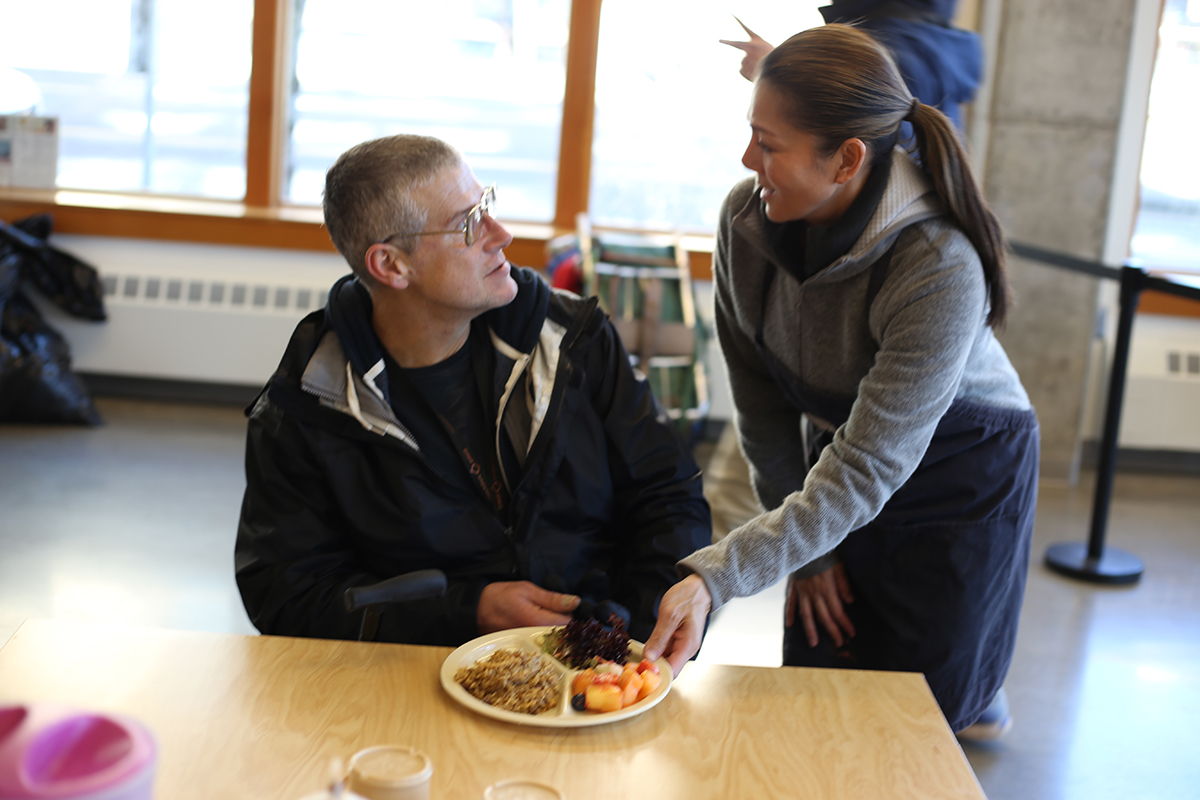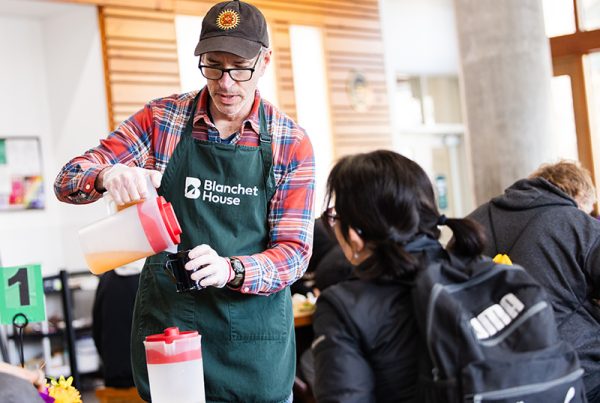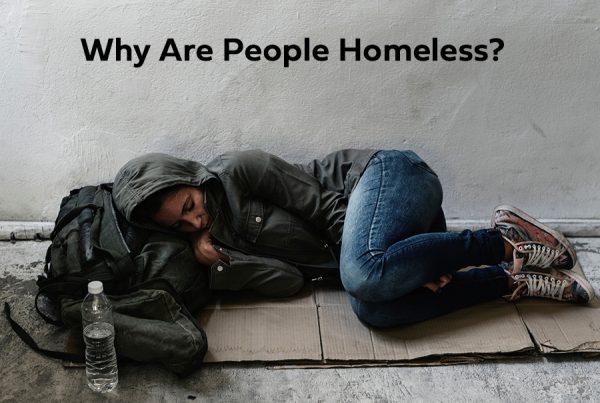We serve people pushed to the margins with compassion and dignity.
By Scott Kerman
Who do we serve at Blanchet House?
To quote Jesuit Father Gary Smith from his new book Moments in the Breach, we serve, “those who live on the margins, those who are disconnected, broken, disenfranchised, vulnerable, discounted, and the forgotten of society.”
People like B.
B.’s been coming to Blanchet House for free meals for a few years now. I’ve learned that B. has a condition that causes her to unexpectedly yell out in the café. This startles staff and guests who are eating nearby.
The stress of living houseless during the pandemic has taken a toll on B. Sometimes she comes to us in a psychotic-like state, almost unrecognizable as the person we know. On other days, she can be lucid and able to engage in simple conversation. B. sometimes sings along sweetly to the music in the café.
But we never know how B. will behave. She can go from peaceful to hostile within an hour of meal service. When this occurs, B. is often able to collect herself enough to apologize later. I’m struck by that. I wonder how much she is aware of when she seems to be out of control.
Living like this must be terrifying and sad.
Delivering Aid to Nonverbal Guests
Another guest we frequently serve who is living on the margins is P. They are difficult to understand because they speak in grunts and gibberish instead of coherent words. It makes serving them difficult because we don’t know what they are asking for. Is it food, coffee, or maybe a cigarette? P. is often delusional and acts in ways that make us reasonably wary. For example, one time P. flung their own feces at our windows.
B. and P. are not the typical meal guest but their presence in our service community cannot be ignored.
In Moments in the Breach, Fr. Gary asks, “Is there anything sadder than to see an individual totally cut off, not wanting to communicate, living in a world of self-denial and self-destruction?”
In my experience, there is not.
Serving food to those on the margins in Old Town is not easy. The sights and sounds in our neighborhood are often pitiful and piteous. We must step around and sometimes over sleeping or extremely distressed people enter our building. The despair among the people we serve is profound.

A volunteer serves a guest in Blanchet House’s cafe.
Meaningful Service for the Most Vulnerable
But there is also profound meaning in our service to this most fragile, vulnerable, and forgotten community. And our staff and volunteers are compelled by it.
Because within the despair and at times horror in our midst, we also see grace and hope.
We see grace and hope in B. and P. Even though their behavior would scare away most people, we are instilled with hope when we see them in true companionship with others.
Many Blanchet House guests appear so fragile and incoherent that we marvel at their persistent, inexplicable survival. They survive in part because they are cared for by peers on the street. Even within this community on the margins, there is a calling to help the most disconnected, broken, vulnerable, and discounted among us.
And they survive because organizations like Blanchet House are committed to offering food, clothing, and a safe place to be welcomed and rest. A place to find connection despite their challenges.
Most of our guests are experiencing food insecurity because of temporary poverty but others are in grave mental and physical distress. There is nowhere else for them to go.
I believe it’s important for us to be aware of the varied needs of people seeking aid in our community. A one size fits all solution to serving and ending homelessness will not work for the most vulnerable people.


















